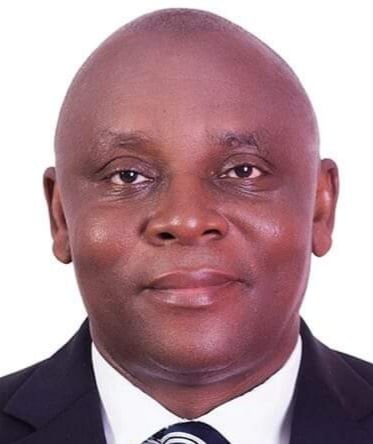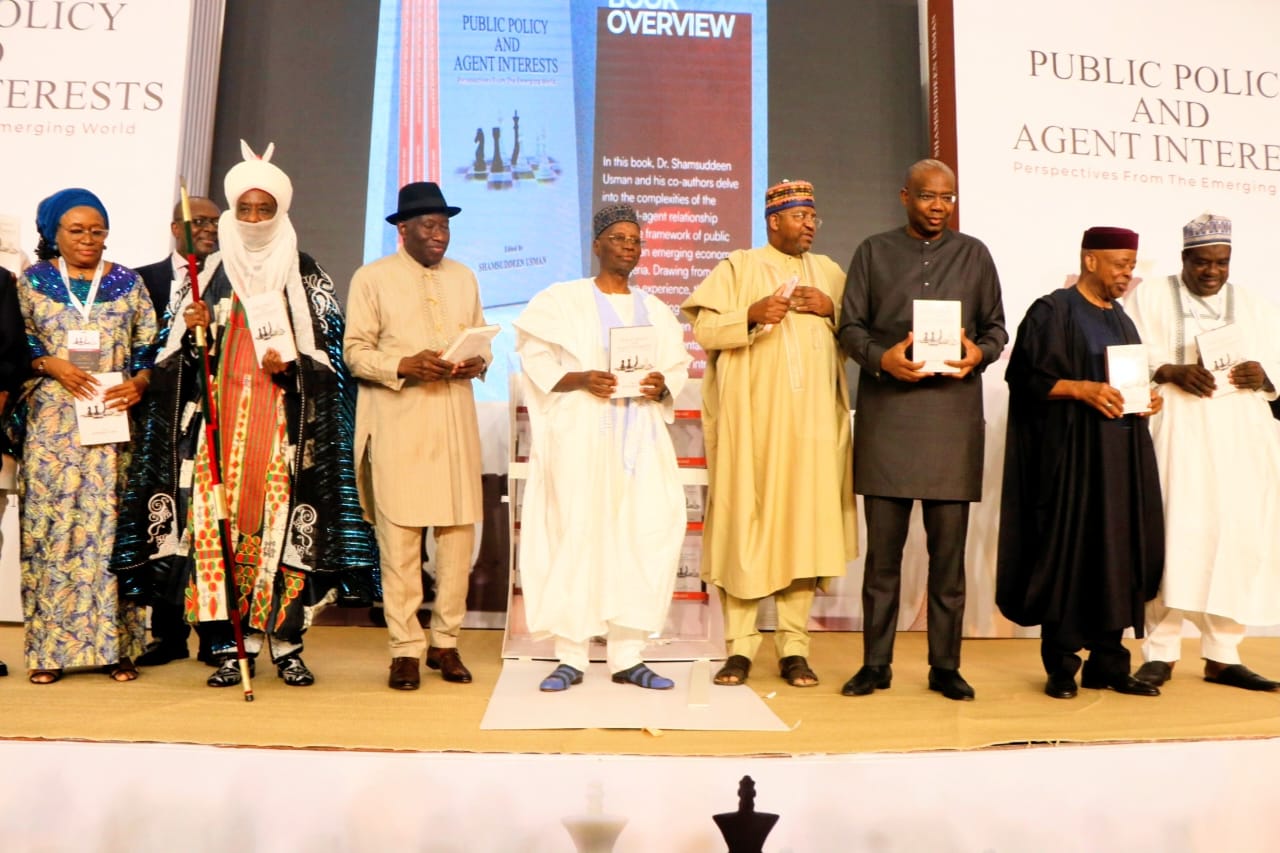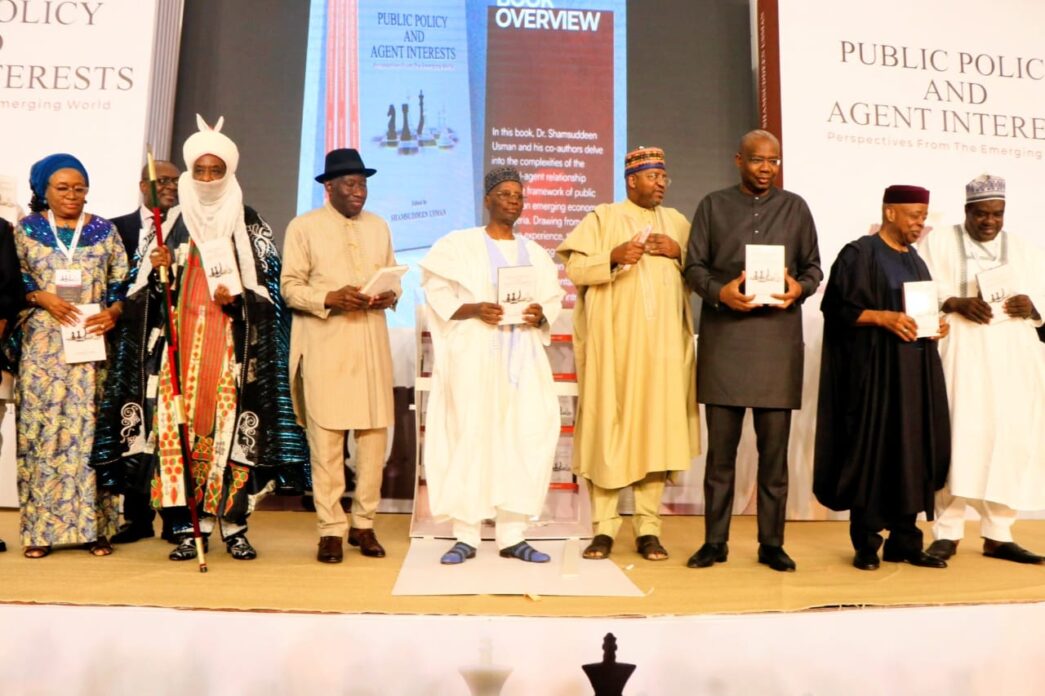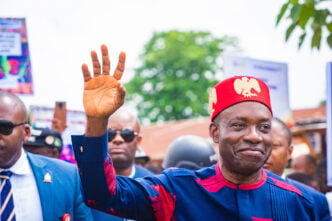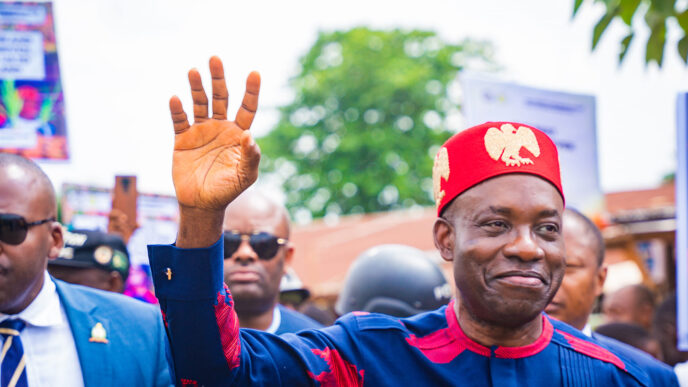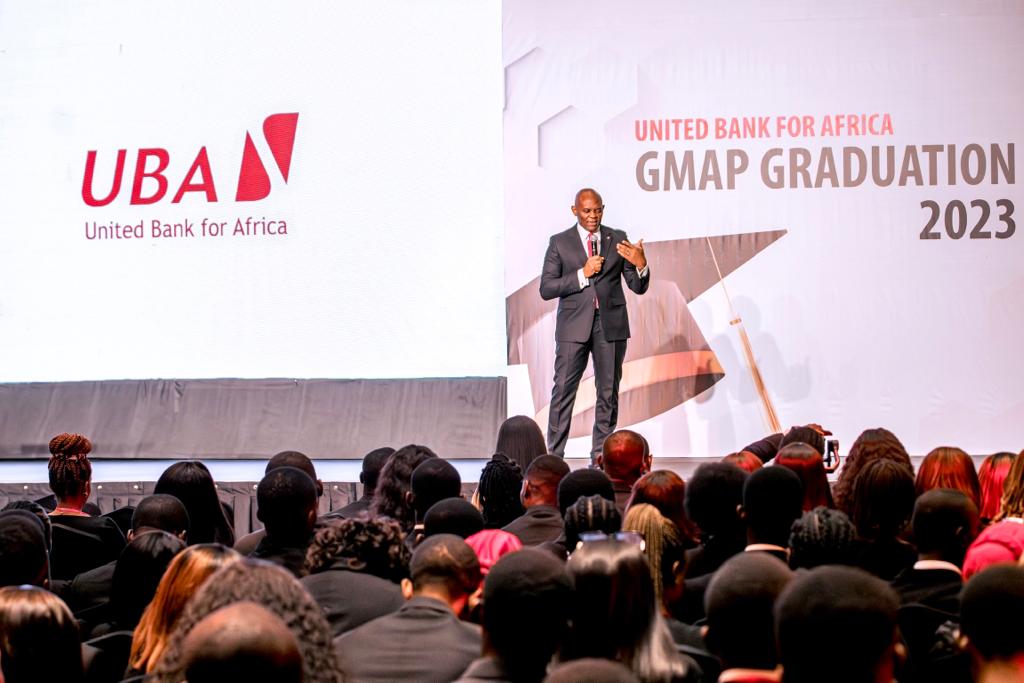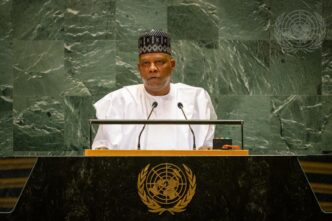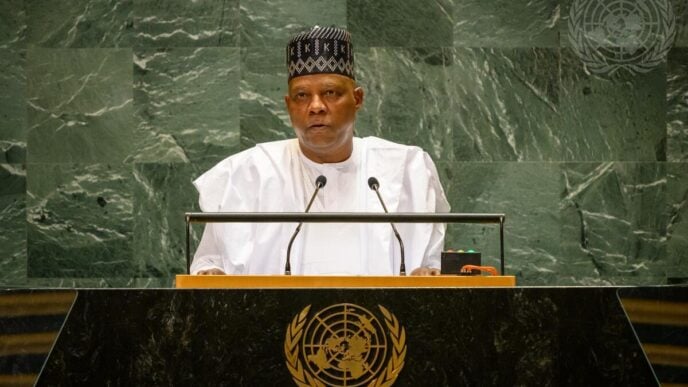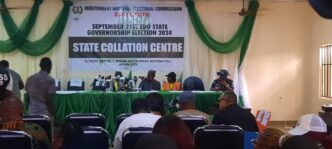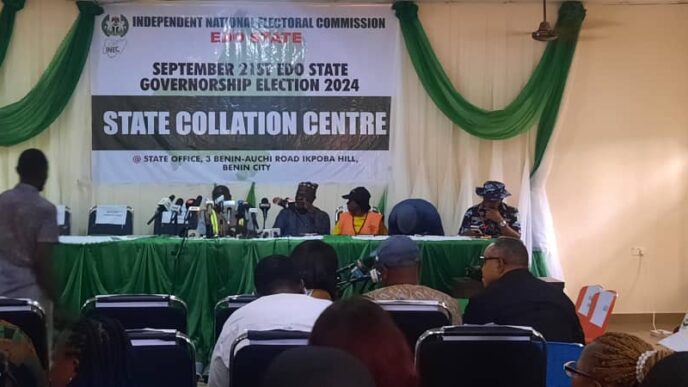If revenge, as the saying goes, is best served cold, then Goodluck Jonathan was well prepared for his encounter with Dr Muhammadu Sanusi II, the Emir of Kano, in Abuja on Thursday, September 26. But if, as the scripture says, a gentle reply turns away wrath, but harsh words stir up anger, we have the emir to thank for the truce that eventually came between these two leaders, eleven years after their faceoff. I hope it will endure. A select collection of Nigeria’s elite class and some foreign nationals had gathered at the auditorium of the beautiful Shehu Musa Yar’Adua Centre in Abuja for the launch of a book coauthored and edited by Shamsuddeen Usman, minister of finance and later minister of national planning in the Jonathan administration.
The Shamsuddeen Usman Foundation, recently founded by Usman’s children in his honour, was also introduced to the audience. The emir is one of the 12 contributors to the book, titled, ‘Public Policy and Agents Interests: Perspectives from the Emerging World’, a seminal piece of intellectual work with great relevance to Nigeria’s story. Jonathan wrote the foreword and served as the chairman of the launch event.
We in the planning committee had anticipated that there would be some kind of drama at the event, given the frosty relationship between the two leaders, but nobody predicted the format it would take. Eugenia Abu, the compere, who knows both men very well (Dr. Jonathan appointed her executive director of NTA in 2014 and Sanusi was her classmate at ABU in the 1980s) had however given us hints of what to expect the previous night.
As CBN governor in 2013, Sanusi had alleged in a letter to President Jonathan that $49.8 billion was unaccounted for as oil revenue by the NNPC. The letter was leaked to former President Obasanjo who then pummeled Jonathan ceaselessly for it. The details of this and other controversies of that era, including his dethronement as the emir, are well captured in Chapter 10 of Dr Usman’s book. Titled, ‘’Vested Interests and Public Servants: The Imperative of Speaking Up’’, it’s an explosive and candid recollection by the former CBN governor. Sanusi’s allegations considerably embarrassed President Jonathan and weakened his presidency, and it is my considered opinion that, together with the Chibok Girls kidnap, these controversies were some of the major reasons Dr. Jonathan failed his reelection in 2015.
Advertisement
Sanusi recalls how Jonathan invited him to his office and asked him to do certain things before he could be pardoned and how the government of the Republic of Niger offered him asylum. Sanusi also writes about another interesting incident in 2009, soon after he was appointed governor. A bank chief executive, declared wanted by the EFCC for stealing from his bank, was taken into hiding by a former governor of a state. It took the direct intervention of the President then for the CEO to be surrendered to face trial. This reminds us of the current situation in which a former state governor, who calls himself ‘’White Lion’’, is being shielded from facing trial by a serving state governor. Nigeria’s dramas sometimes repeat themselves in a farcical manner!
I understand that when Jonathan read the manuscript of Sanusi’s contribution, he was so incensed that he initially turned down the request to write the foreword and chair the event. But he later changed his mind when it dawned on him that this was an opportunity to square off with the emir. In his foreword, Jonathan describes the book as ‘’a dense and penetrating insight into the workings of government and the boardroom, in terms of policy formulation and implementation, economic management as well as overall growth paradigm in the developing world, with Nigeria as a case study’’.
He further explains his relationship with Usman and paints a character portrait of him as ‘’a sincere patriot, consummate economist, technocrat and scholar who has proven his mettle both as a public policy professional and boardroom guru’’. He concluded however that he does not ‘’agree with some of the submissions of the contributors, in terms of their accuracy in rendering the accounts of their experiences and incidences in service, especially under my administration’’. He continues: ‘’I actually observed, in a couple of places, some self-serving and self-absorbed narratives, carefully designed to appeal to sentiments other than the truth’’, noting that the foreword was not the platform to join issues with those authors.
Advertisement
Jonathan arrived at the event at about 9.30am, half an hour to its scheduled commencement, and was warmly welcomed by Usman who led him into the holding room annexed to the auditorium. About 40 minutes later, Dr. Sanusi arrived, but he was led straight into the auditorium which was almost filled by now. In the holding room, Jonathan requested for a minor adjustment in the program, bringing up his remarks earlier than scheduled. Soon, he came into the auditorium accompanied by the chief host, Dr. Usman. Smiling, the former President shook hands with the front-row dignitaries, including Wale Edun and Abubakar Bagudu, both ministers in the Tinubu administration. He got to the emir who had by now sprung to his feet. They shook hands and chatted briefly, to the relief of onlookers, but little did we know what was to unfold moments later.
After the opening remarks by Prof. Khalid Aliyu Abubakar, the cleric whose sermon had years earlier, provided the needed motivation to Usman to commence work on the book, Dr. Jonathan was invited to give the Chairman’s opening remarks. He spoke of his relationship with Usman and praised him and his book, similar to what he wrote in the foreword. Jonathan noted that when Usman served in the first batch of the NYSC in 1973 in what was then known as South Eastern State (now Akwa Ibom State), he was in Form Three (JSS 3), and that he always remembers two young NYSC members who taught him Chemistry and Additional Mathematics that year, whenever he sees Usman. We all laughed. Experts advise that you should begin a speech with light-hearted remarks to capture attention and put the audience at rest.
Then the former president launched into the heart of the matter, refuting the allegations that $49.8 billion was missing or unaccounted for. He said there was no way such an amount would be lost and the economy would not collapse. His words: “I do not particularly agree with the perspective taken by one of the contributors to the book, Sanusi II, the Emir of Kano, especially the one he raised that he was sacked because of the revelations that the federal government lost $49.8 billion. It’s not quite correct.”
Jonathan spoke with passion, sometimes taking his eyes off his prepared speech, defending his presidency extemporaneously. ‘’I believe that when we are giving an account of our stewardship, it’s good to mention the specifics so that the reader is not misled’’, he said, adding that even at that time, Dr. Sanusi kept changing the figure that was allegedly missing. He recalled that he had travelled abroad to attend the Africa-EU Summit and Angela Merkel, then Chancellor of Germany, requested for a bilateral with the Nigerian President. “I arrived the venue of the bilateral with my delegation, and had barely taken my seat when the Chancellor raised the issue of the missing $49.8 billion,” Jonathan recalled. “I told her that if such an amount was missing, the Nigerian economy would have collapsed; and she agreed that even the German economy, the largest in Europe, would be greatly impacted if it lost such a humongous sum of money.”
Advertisement
It took another hour or more for Sanusi to be given an opportunity to speak. In between came the book review brilliantly delivered by Joe Abah; a presentation on the Shamsuddeen Usman Foundation; speeches from the chief launcher, Aigboje Aig-Imoukhuede, Chairman of Access Holdings and Coronation Group; the Dangote Group and a few others. The hall was still packed full as guests waited for Sanusi’s response. A TV journalist asked me: ‘’Will Sanusi still speak?’’. The anticipation was strong. Reporters were already casting their headlines.
At about 12:45pm, the emir climbed up to the podium. He greeted Dr. Jonathan as ‘’my boos and President who sacked me’’. The audience let out a loud laughter that nearly brought down the roof. It was a response to Jonathan’s earlier remarks that he did not sack Sanusi; rather, he was suspended because of findings by the Reporting Council of Nigeria that had audited the apex bank and discovered some infractions.
Then Sanusi dropped the bomb. ‘’If you are waiting for me to respond to President Jonathan, you’d be disappointed. I won’t reply to him out of respect’’. A loud applause. It was the catharsis we’ve been longing for. A moment in time. The emir noted that he has no grudges against Jonathan or anybody and that since he left as the CBN governor, he’s gone on to obtain a PhD from a UK university and regained his throne. ‘’I really have no reason to bear grudges and hurt anybody’’, he said, adding that all that he’s interested in is how to make Nigeria work for everybody. He described our system as a rentier economy in which a rapacious elite class continues to feed on the resources of the country while the masses continue to live in abject poverty.
Sanusi drew another applause when he cited the controversy surrounding the Dangote Refinery and the preference by some people in government for continued fuel importation as a clear case of agent interests trumping the interests of the people. At the end, it was a well-attended and well-organized event with enough messages and lessons for everybody.
Advertisement
Views expressed by contributors are strictly personal and not of TheCable.
Add a comment
